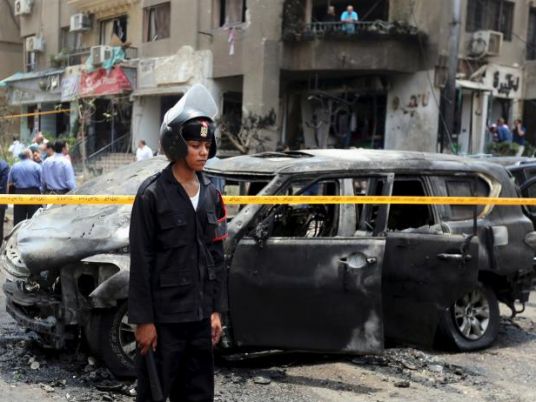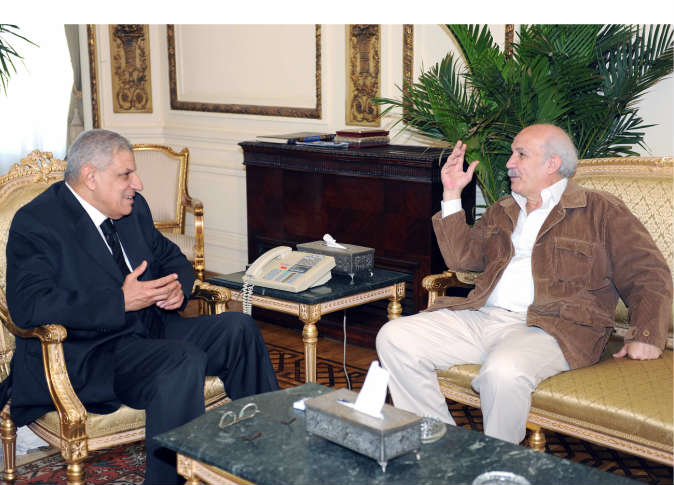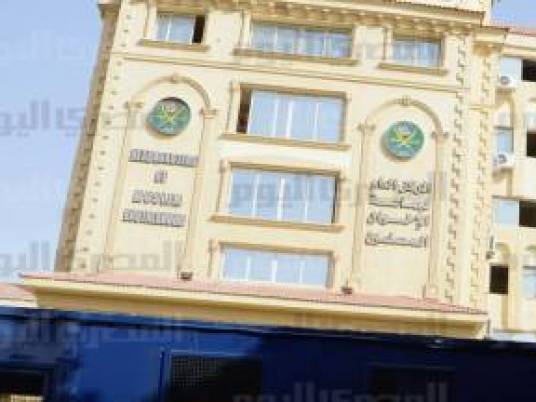The Tagammu Party
Party President: Refaat al-Saeed
Party history: The Tagammu party is the most prominent socialist party in Egypt. It was established in 1976 after a decision by former President Anwar Sadat to change the party system in Egypt from a single-party system that dominated after the 1952 revolution to a multi-party system. Tagammu stands for the National Progressive Unionist Party.
The party founder, Khaled Mohieldin (born 1922), a member of the Free Officer movement in 1952, aimed to gather various left-leaning factions such as Marxists, Nasserists, Nationalists and progressive Islamist on one platform.
During the Sadat era, the party participated in two elections. It obtained three seats in the relatively free 1976 elections but failed to gain any in the 1979 elections. Having served as a defiant opponent for almost every single measure adopted by the late president Sadat from 1976 to 1981, Tagammu was the most vocal formal opposition especially after the food riots of 1977 and Sadat's visit to Israel in the same year. Sadat launched a severe attack against Tagammu, accusing them of being communists who deny the existence of God. The party newspaper managed to circulate more than 50,000 copies. However, the Sadat regime confiscated the paper then closed it for six months.
The tensions between Tagammu and the state continued in the first ten years of the reign of President Hosni Mubarak but were not as severe as they were during the time of Sadat. The party rejected the re-election of Mubarak in 1987 under the presidential referendum, saying that Sadat's successor was following the same steps that put Egypt in a tough political, economic and social situation. However, the leadership of the party and the state united in fighting terrorism that dominated the Egyptian landscape in the first years of the 1990s.
After the last 2005 parliamentary elections, the party entered into a stage of self-criticism that attacked the management of the party, current president Refaat al-Saeed, and his close relations with government circles as well as his systematic attacks against the Muslim Brotherhood.
Party paper: Al-Ahaly is a weekly newspaper, established in 1978, and the party’s mouthpiece. During the late seventies and eighties, the paper was strong in terms of journalistic features as well circulation (reaching 50,000 copies). However, the paper weakened significantly in the last five years due to weakness encountered by the party itself as well as the rise of more qualified news competitors. In 1989, Philip Galap was the first Christian to be the editor-in-chief of a political party's mouthpiece. The current editor-in-chief of the paper is Fareeda al-Naccash, the first woman to have the post in any political party.
Party platform: The party defines itself as a socialist party, a definition that has lost much of its strength after the fall of the Soviet Union. The party defends a bigger role for the state in order to protect individuals from exploitation. It adopts what it calls a social democratic system. In foreign policy, the party objects to the peace treaty with Israel, as well as a close relationship with the United States.
Party parliamentary history: In the three consecutive parliamentary elections (1990, 1995 and 2000), the party obtained five-six members of parliament, a number that deteriorated significantly in the 2005 elections. In those elections, the party performed very poorly, winning only two seats. At the same time, party leader Khaled Mohie Eddin lost his seat in his stronghold, the city of Kafr Shoker.
Party plan for the upcoming elections: The Tagammu Party has announced that it will participate in the 28 November parliamentary elections. This announcement makes Tagammu the only opposition party which has participated in every single election since the transformation to the multi-party system in 1976. The party is fielding 78 candidates (12 percent of whom are Christians) in 21 governorates, a number that makes the party the fourth political power in terms of candidate number (after the National Democratic Party, the Muslim Brotherhood, and the Wafd Party). Some political figures accuse the party of having reached a deal with the government to increase the party seats in the lower house. Party leader al-Saeed denied such claims.



